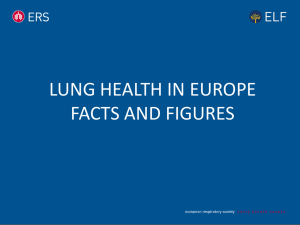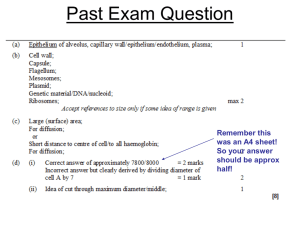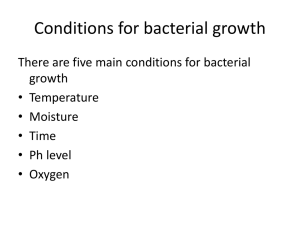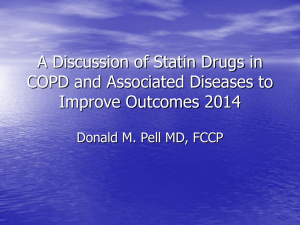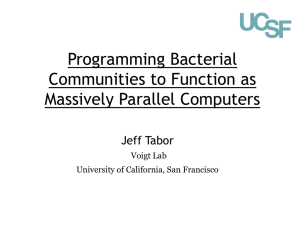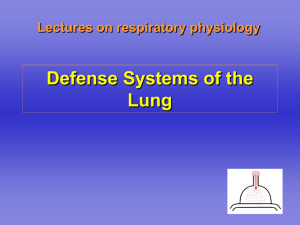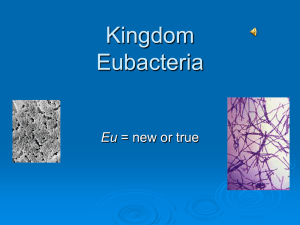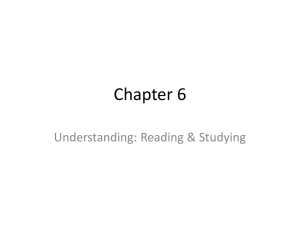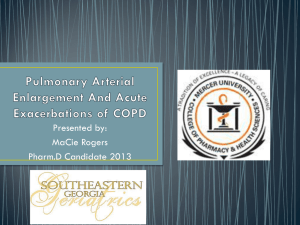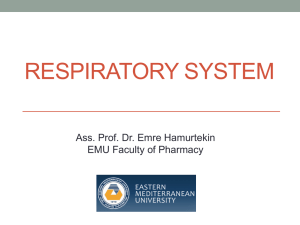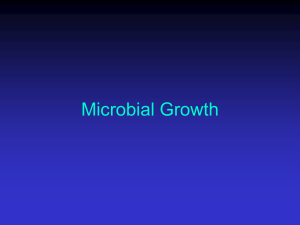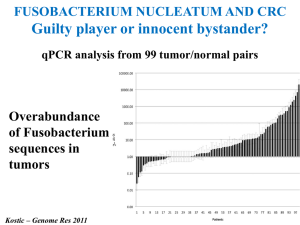An adapted island model of lung biogeography
advertisement
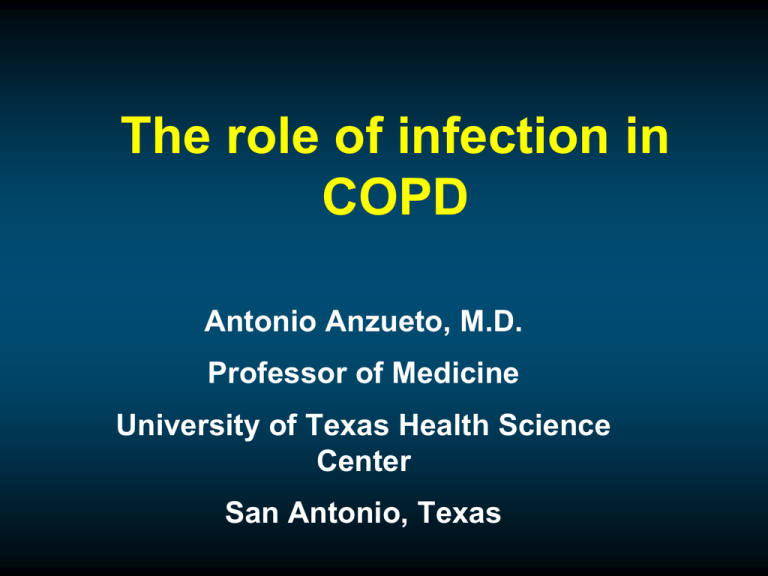
The role of infection in COPD Antonio Anzueto, M.D. Professor of Medicine University of Texas Health Science Center San Antonio, Texas Disclosures Personal financial interests in commercial entities that are relevant to my presentation: Boehringer Ingelheim: consultant: advisory board, Current GlaxoSmithKline: consultant, advisory board, Research Grant to the University, Current Chiesi: consultant, advisory board, Past Bayer-Schering Pharma: consultant, advisory board, Current Dey Pharma: consultant, advisory board, Current Forest laboratories: consultant, advisory board, Current Non-commercial, non-governmental interests relevant to my presentation : Member of the ATS/ERS Task force on COPD and COPD Exacerbations, Current Member of Scientific Committee of GOLD, Current Las Meninas Velasquez Las Meninas Picasso Pathogenesis of Airway Infection • • Lungs are sterile Suitable large inoculum of pathogenic sp. enters the lower respiratory tract • • Overwhelms host defenses Unrestrained growth of a bacteria species Pasteur L. C R Acad Sci 1881; 92:159-65 Alternative Concepts for Lung Infections - An adapted island model of lung biogeography - Effect of environmental gradients on lung microbiota -LRTI are the results of unexplored positive feedback loops Alternative Concepts for Lung Infections - An adapted island model of lung biogeography Effect of environmental gradients on lung microbiota LRTI are the results of unexplored positive Feedback loops Pooled studies of bronchoscopy in stable COPD and patient during AECB 30 10 0 5 Percent of patients with > 102 DFU/ml Percent of patients with particular organism 60 50 40 30 20 25 20 H. flu S. pneumo 15 M. cat P. aer 10 0 Healthy Healthy Rosell et al. Arch Int Med 2005; 165: 891-7 Stable COPD Stable COPD AECB AECB Colour of sputum as marker of bronchial colonization Miravitlles M. Respir Res 2010; 11: 58 Recurrence Bacterial load (CFU/ml) 40% Clinical threshold Recurrent colonization PPM1 PPM 2 Time (days) PPM3 Persistence 10% “fall & rise” of bacteria in COPD Bacterial load (CFU/ml) New strain / Individual factors / External modifying factors Clinical threshold Time (days) AE AB Modified from Miravitlles. Eur Respir J 2002: 20: 9s-19s Cure Time to relapse ~5 % of microorganisms currently culturable, depending on environment, sample and effort. “The Great Plate Count Anomaly” Staley and Konopka 1985 Annual Review of Microbiology 39 pp 321-346 16S Ribosomal Subunit Carl Woese Phylogenetic structure of the prokaryotic domain: the primary kingdoms Woese and Fox, 1977 PNAS 74(11) pp 5088-5090 Norman Pace: Rapid determination of 16S ribosomal RNA sequences for phylogenetic analyses Lane et al, 1985 PNAS 82(20) pp 6955-6959 PCR PROVIDES A BETTER STANDARD THAN CULTURE FOR DETECTION OF AIRWAY BACTERIA Prevalence of bacteria (%) 70 60 *p<0.05 * culture 50 qPCR 40 * 30 * 20 * 10 0 Overall HI SP MC Typical bacteria species Garcha D S et al. Thorax -2012 Immigration and extinction rates for an island as a function of number of species present MacArthur and Wilson Evolution 1963; 17:373 Microbiota within the respiratory tract Dickson et al Lancet Respir Med 2014; 2:238 Airway Phylogenetic Tree Hilty M, et al. PLoS ONE 2010; 5: e8578. Does the lung have an indigenous bacterial microbiota? YES Erb-Downward et al. PLoS One. 2011;6(2):e16384. Microbiota in asthma and COPD Hilty M, et al. PLoS ONE 2010; 5: e8578. Microbiota Diversity in COPD compared with controls: Equivalent Sze et al AJRCCM 2012; 185:1073–1080 Positive immigration factors: Favors Increase Bacterial Burden Proximity to oropharynx Increased oropharyngeal microbial burden Laryngeal dysfunction Gross aspiration, impaired consciousness Gastro-oesophageal reflux Supine positioning Medications (eg, proton-pump inhibitors) Effect of Body position Pharyngeal Bronchial • Supino o Semi-incorporado Orozco-Levi M. AJRCC Med 1995;152:1387 Rates of Hospital-Acquired Pneumonia According to Acid-Suppressive Medication Status Herzig et al JAMA. 2009;301:2120-2128 Negative extinction factors: Allows bacteria growth Impaired cough reflex Endobronchial obstruction Impaired ciliary function Presence of endotracheal tube Impaired innate, adaptive immune response Medications (eg, inhaled corticosteroids, pentobarbital) Endotracheal Tube Subglottic Secretions Endotracheal Tube Cuff Biofilm on ETT Pooled Secretions in Airway Dispersal of Biofilm With Ventilation What happens to a drug after deposition in the lungs? (1) = first contact with airway surface liquid, (2) = absorption of active ingredients across pulmonary epithelium, this process is controlled mainly by physiochemical properties (dissolution rate and lipophilicity) (3) = Clearance of non-dissolved particles by mucocilliary clearance or phagocytosis Ruge CA, et al. Lancet Respir Med 2013 Bacterial load: Asthma C-Steroid resistant or sensitive Goleva et al AJRCCM 2013 188:1193–1203 8 Bacterial load increased by rhinovirus infection Bacterial load (log10 CFU) * p<0.05 * * D12 D15 6 4 2 0 D0 D5 D9 3/52 4/52 5/52 6/52 Study days FIGURE 6.08 Johnston S AJRCCM 2013 Sputum virus load (log10 RV RNA/ml) group developed a positive bacterial culture (p=0.17) 6 Virus Bacteria 5 5 4 4 3 3 2 2 1 1 0 D0 0 D5 D9 D12 D15 3/52 Study days 4/52 5/52 6/52 Bacterial load (log10 CFU) 2/10 (20%) controls 5/9 (55.6%) COPD 6 Distribution of bacterial phyla at each time point after rhinovirus (RV) inoculation Control COPD Molyneaux et a l AJRCCM 2013:188, 1224–1231 Alternative Concepts for Lung Infections An adapted island model of lung biogeography Effect of environmental gradients on lung microbiota LRTI are the results of unexplored positive Feedback loops Regional differences in gas exchange in the upright lungs West JB Chest 1978; 74:426 Does the indigenous bacterial microbiota is different in the lungs? Erb-Downward et al. PLoS One. 2011;6(2):e16384. Mean wall and air temperature in the tracheobronchial tree of human beings after hyperventilating cold air Ignito et al J Appl Physiol 1987:63:2075 Alternative Concepts for Lung Infections An adapted island model of lung biogeography Effect of environmental gradients on lung microbiota LRTI are the results of unexplored positive Feedback loops Mechanism of Exacerbation Susceptible Patient Non-Susceptible Patient Sufficient Trigger EXACERBATION SUSCEPTIBLE PATIENT + SUFFICIENT STIMULUS = EXACERBATION Psusc + Ssuff = E Potential positive feedback explaining the emergence of infection from pre-existing homoeostasis Dickson et al Lancet Respir Med 2014; 2:238 BACTERIAL LOAD AND AIRWAY INFLAMMATION Patel et al Thorax 2002 rho = 0.459 p = 0.02 Species-specific bronchial inflammatory response Statistically significant Inflammatory response associated with H influenzae Marin. Eur Respir J 2010;35:295 Species-specific bronchial inflammatory response H. influenzae Marin. Eur Respir J 2010;35:295 P. aeruginosa/enterobacteria H.parainfluenzae Lung Infection: positive feedbacks increases bacteria growth • Catecholamines promote the in-vitro growth of many pneumonia-associated bacterial species, including Streptococcus pneumoniae69 and many Gram-negative rods • Host production of catecholamines in response to bacteriainduced inflammation could in turn accelerate bacterial growth. • Quorum sensing has been used to explain the change in virulence in acute exacerbations of cystic fibrosis, and could be present in other respiratory infectious processes Belay et al Life Sci 2002; 71: 447–56. Fresstone et al Chest 2012;142: 1200–10. Old Model Sterile Plan Large inoculum Do Sterile- Large inoculum -infection- bacteria growth New Model Complex Adaptive Systems Impaired cough Body position GERD Medications: PPI, ICS ©2001 Institute for Healthcare Improvement Lacto-bacillus supplement: time to microbiologically confirmed VAP Lacto-bacillus No- Lacto-bacillus Morrow et al AJRCCM 2010;182:1058–1064 SURVEILLANCE CULTURE DATA Morrow et al AJRCCM 2010;182:1058–1064 Conclusions The airways are not sterile There is every day more data that airway microbial communities are disturbed in asthma and COPD Different factors affects microbiome including the environment and different areas of the lung Balance between positive and negative loops result in infection It is possible to manipulate the airway community? Las Meninas Muchas Gracias!!!
